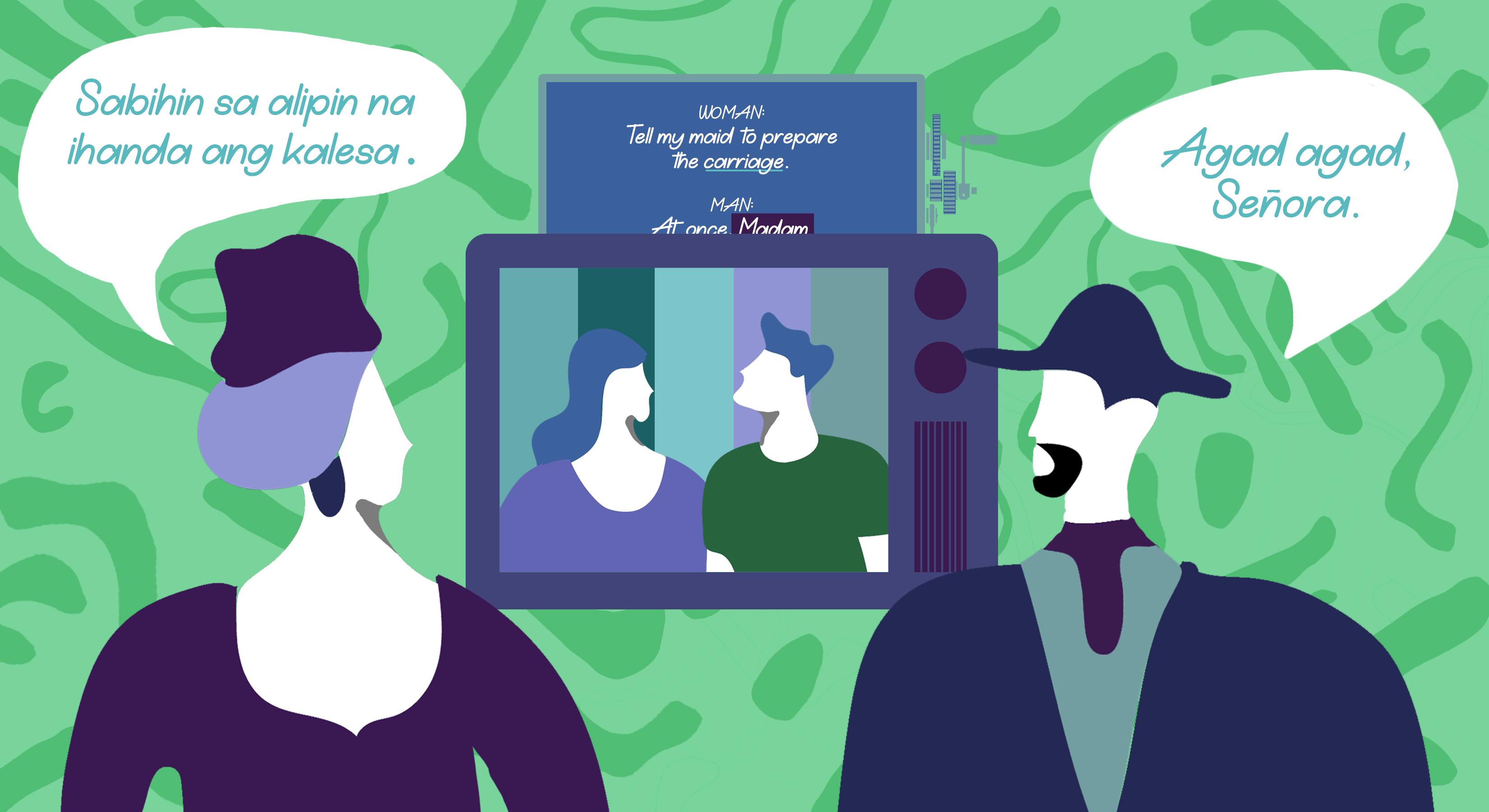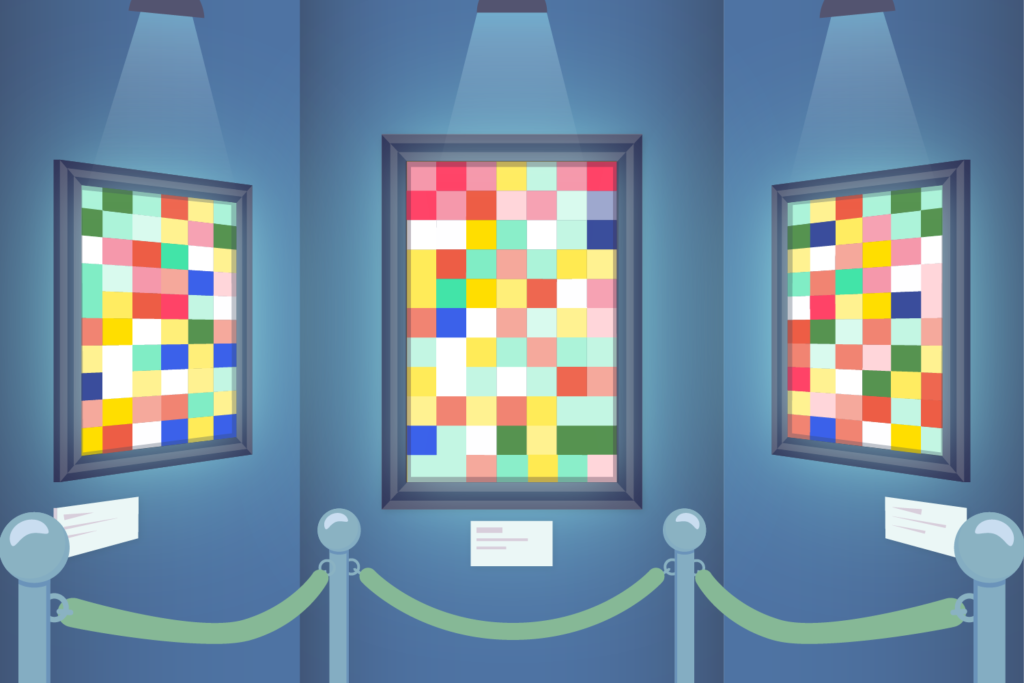Picture this: It’s a hot and sticky afternoon and you’ve just gotten home from school. Impatiently, you turn on the television and flip through the channels until a familiar character catches your eye. Great, Spongebob is playing! Contented, you settle into the couch, until—“Magandang umaga, Patrick!”
The exasperation at hearing an awkwardly dubbed line is not exclusive to Filipinos. Dubbing may be an attempt to make media more inclusive, but translations gone awry continue to draw widespread criticism.
Local social media users, in particular, have been vocal in mocking Filipino-dubbed shows. This ridicule tends to overshadow their intended purpose: To localize global trends for a wider audience to enjoy—which then begs the question of whether these shows deserve such harsh disapproval.
Lost in translation
Dubbing has been around in the Philippines since at least the 1990s, first introduced through Mexican telenovelas and Japanese animes. According to literary translation specialist and English Department assistant professor Louie Sanchez, PhD, dubbed shows are “global products” which were able to “penetrate the Philippine market” and “enable [Filipinos] to participate more vicariously in the globalized world.”
With dubbed shows eventually came the rise of the Philippine voice acting industry. Voice actors Gica Pollisco (AB COM ‘17) and Hara Velasquez themselves grew up watching these kinds of series from around the globe. Once part of the now-defunct Hero TV’s Dubbing Academy, they fondly cite dubbed animes as the push that got them into professional voice acting, particularly for anime and other cartoon dubs.
“[Dubbed shows] introduced me to anime in general and created many fond memories of me recreating fight scenes with my cousins, or rushing home from school to catch our favorite show in the afternoon,” Velasquez recalls. “The dubbers of those shows I watched made a part of my childhood awesome. I want to do the same for the kids of the new generation.”
Having entered a field glamorized by her childhood, Velasquez now acknowledges that the sentiments surrounding Filipino-dubbed shows are far from positive. “I know the ‘cringe-y’ aspect [of Filipino-dubbed shows] comes from the script sounding awkward with how deep the choices of words are,” she admits.
These awkward lines, according to Velasquez, emerge because most dubbing scripts are not written by professional translators, but by dubbers themselves. She also points out that the scripts are rarely final, even in the recording booth. “The director can still make changes if he or she does not like a certain line or [if] there is a continuity error,” Velasquez explains. “I’ve been in a recording session where most of the script was rewritten by my director [on the spot].”
Alongside concerns with the script, the lack of extensive training must also be taken into account. “Some [dubbers] just get referred by a friend to the director,” Velasquez shares.“But most dubbers take workshops with directors, siguro for a month or a few, and that’s how they get into the industry.”
However, it’s clear that fans don’t always understand the technicalities behind dubbing. Pollisco, who’s dubbed anime such as Love Live! The School Idol Movie, says that most criticism for Filipino-dubbed shows comes from “purists”: A term she uses to describe hardcore fans of the original shows. “I feel [the purists’] sentiments because when it comes to anime, I almost always hate the English dubs because they [don’t] convey the emotion as well,” she shares.
But both Pollisco and Velasquez agree that translating emotions across languages is a tall order. Jokes, in particular, are difficult to adjust, given their specific cultural nuances. “[With] Loud House, some of the jokes were translated [too] literally and they became unfunny,” Velasquez adds, looking back on her dubbing work for the Nickelodeon cartoon. “[That’s the] problem with not having writers who have a formal background in Filipino language and translation.”
Building bridges
Despite the issues with dubbing, translations are key for a wider set of viewers to enjoy shows from across the globe. Still, Pollisco recognizes that some will always be opposed to how the material is tweaked for public consumption. “[When] you’re in media, you try to appease the bigger audience,” she says. “And so [TV executives] usually will choose what the masses will understand, even if it might cause backlash from the [purist] fans.”
Purist backlash aside, dubbing remains relevant in bringing global trends to a level that more local viewers can relate to. “Some Filipinos aren’t very fluent in English,” Velasquez shares. “So dubbing shows in Tagalog helps [our countrymen] understand [these shows] more.”
To Sanchez, dubbed shows even have the potential to improve how Filipinos see their national language. Negative attitudes about Filipino clearly exist as evidenced by issues such as its removal as a core subject in the college curriculum. He mentions the English monopoly on television and the relatively high rate of English proficiency in the Philippines as reasons why some fail to appreciate dubbing. “Perhaps people still find it unnecessary, as we think we all have access to English anyway,” Sanchez says.
This notion of full English literacy is precisely what dubbed shows aim to debunk. “I believe that dubbing helps in fighting English hegemony by further championing the full Filipinization of television,” Sanchez continues. “It’s still a work in progress with so many things to tweak like language use itself. [But] dubbing has contributed very significantly to this process.”
Those who readily understand everything they see and hear tend to forget how others may have difficulty doing so. With this in mind, dubbing artists tackle the language barrier and allow Filipinos at large to connect with what the world has to offer. These shows continue to touch young viewers who, like Pollisco and Velasquez, can grow up to pay it forward—one dub at a time.
Editors’ note: A previous version of this article credited Pollisco for having dubbed “Long Live! The School Idol Movie.” The correct title is “Love Live! The School Idol Movie.” We apologize for the oversight.






